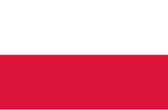
Call 0330 880 3600 Calls may be monitored or recorded. Opening Times.
- TRAVEL INSURANCE
- COVID-19 COVER
- More Options
- Help & Advice
- Existing Customers

Call 0330 880 3600 Calls may be monitored or recorded. Opening Times.

Need help?
UK Customer Services0330 880 3600*
Open Monday to Friday 9:00am to 6pm, Saturday 8:30am to 4pm and closed Sundays.
*Calls are recorded for training and quality purposes.
Other Guides

Official name: Republic of Poland
Capital city: Warsaw
Languages spoken: Polish
Population: Around 37 million
Currency: Polish zloty (PLN)
Time zone: GMT+1 (GMT+2 in summer)
Driving side: Right
Climate: A mix of continental and oceanic influences, with cold winters, warm summers, and variable spring and autumn weather
Poland is a country of striking contrasts, blending historic charm with modern dynamism. Its medieval old towns, Renaissance squares, and Gothic castles stand alongside contemporary cities buzzing with culture and innovation. From the Baltic coast to the Tatra Mountains, Poland offers diverse landscapes, rich traditions, and warm hospitality, all shaped by a complex and resilient history.
Poland is situated in Central Europe, bordered by Germany, Czechia, Slovakia, Ukraine, Belarus, Lithuania, and Russia’s Kaliningrad enclave, as well as the Baltic Sea to the north. Its terrain includes lowlands, uplands, and mountain ranges such as the Carpathians and the Sudetes. The Vistula River runs through much of the country, connecting Warsaw and Kraków to the Baltic coast.
Warsaw Chopin Airport and Kraków John Paul II International Airport are the main international gateways, with many regional airports serving European routes. Poland has a well-developed rail network connecting major cities, and long-distance buses offer affordable alternatives. Car hire is common, but roads in rural areas can be less well maintained. Public transport in cities is efficient and includes trams, buses, and metro services in Warsaw.
As a member of the EU and Schengen Area, Poland allows UK citizens and other nationals visa-free entry for short stays of up to 90 days in any 180-day period. For work or long-term stays, appropriate visas or permits are required. The British Embassy is located in Warsaw.
The Polish zloty (PLN) is the national currency. ATMs are widely available, and credit and debit cards are accepted almost everywhere. Contactless payments are particularly popular. While Poland is affordable compared to Western Europe, costs in major tourist centres like Warsaw and Kraków are higher than in smaller towns and rural areas.
Poland has a good standard of healthcare, especially in major cities where hospitals and clinics are well-equipped. English is often spoken by medical staff in urban areas. EU citizens can use a GHIC/EHIC card for necessary treatment, but comprehensive travel insurance is recommended for private care or repatriation. Pharmacies are common, and tap water is safe to drink in most cities.